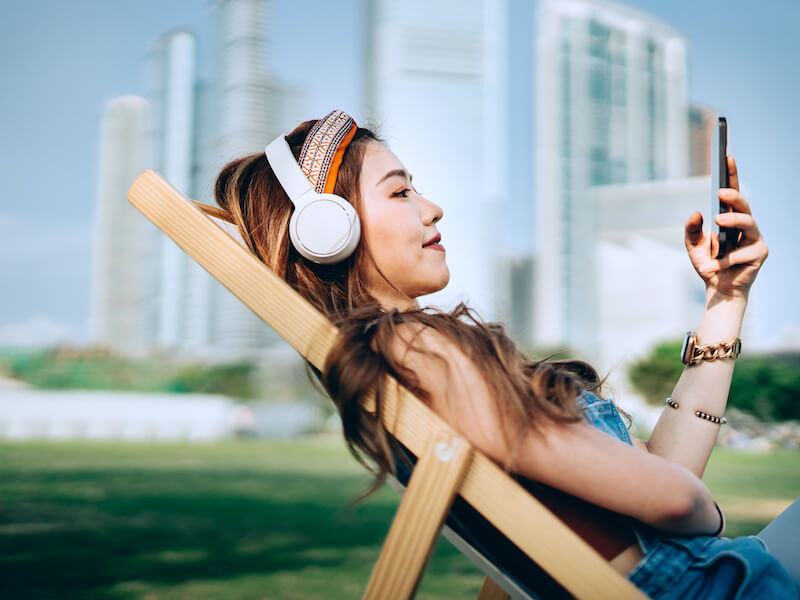
Aiden enjoys music. He listens to Spotify while working, switches to Pandora when jogging, and he has a playlist for everything: gaming, cooking, gym time, and everything else. His entire life has a soundtrack and it’s playing on his headphones. But irreversible hearing damage may be happening as a consequence of the very loud immersive music he loves.
As far as your ears are concerned, there are healthy ways to listen to music and unsafe ways to listen to music. But the more dangerous listening choice is frequently the one most of us choose.
How can hearing loss be caused by listening to music?
Your ability to hear can be damaged over time by exposure to loud noise. Normally, we think of aging as the principal cause of hearing loss, but more and more research reveals that it’s really the accumulation of noise-induced damage that is the issue here and not anything inherent in the aging process.
It also turns out that younger ears are especially vulnerable to noise-induced damage (they’re still developing, after all). And yet, the long-term harm from high volume is more likely to be disregarded by young adults. So because of extensive high volume headphone use, there has become an epidemic of hearing loss in younger people.
Can you enjoy music safely?
It’s obviously hazardous to enjoy music on max volume. But simply turning down the volume is a safer way to listen. Here are a couple of general guidelines:
- For adults: Keep the volume at less than 80dB and for no more than 40 hours a week..
- For teens and young children: 40 hours is still fine but lower the volume to 75dB.
Forty hours every week is about five hours and forty minutes per day. That may seem like a lot, but it can go by rather rapidly. Even still, most individuals have a pretty sound idea of keeping track of time, it’s something we’re trained to do successfully from a really young age.
The harder part is keeping track of your volume. On most smart devices, smartphones, and televisions, volume is not measured in decibels. Each device has its own arbitrary scale. It could be 1-100. Or it might be 1-10. You may have no idea what the max volume is on your device, or how close to the max you are.
How can you monitor the volume of your music?
It’s not really easy to tell how loud 80 decibels is, but fortunately there are a few non-intrusive ways to know how loud the volume is. Distinguishing 75 from, let’s say, 80 decibels is even more perplexing.
That’s why it’s highly recommended you use one of many free noise monitoring apps. These apps, widely available for both iPhone and Android devices, will provide you with8 real-time readouts on the noises around you. That way you can track the dB level of your music in real-time and make adjustments. Or, while listening to music, you can also adjust your configurations in your smartphone which will efficiently tell you that your volume is too high.
As loud as a garbage disposal
Typically, 80 dB is about as loud as your garbage disposal or your dishwasher. That’s not too loud. It’s an important observation because 80dB is about as loud as your ears can cope with without damage.
So you’ll want to be more aware of those times at which you’re moving beyond that volume threshold. If you do listen to some music above 80dB, don’t forget to minimize your exposure. Maybe limit loud listening to a song instead of an album.
Listening to music at a loud volume can and will cause you to develop hearing problems over the long term. Hearing loss and tinnitus can be the result. The more you can be cognizant of when your ears are entering the danger zone, the more informed your decision-making will be. And ideally, those decisions lean towards safer listening.
Call us if you still have questions about the safety of your ears.
